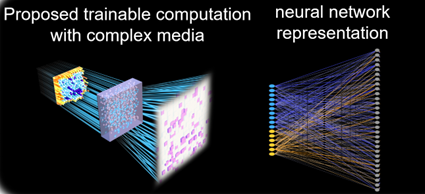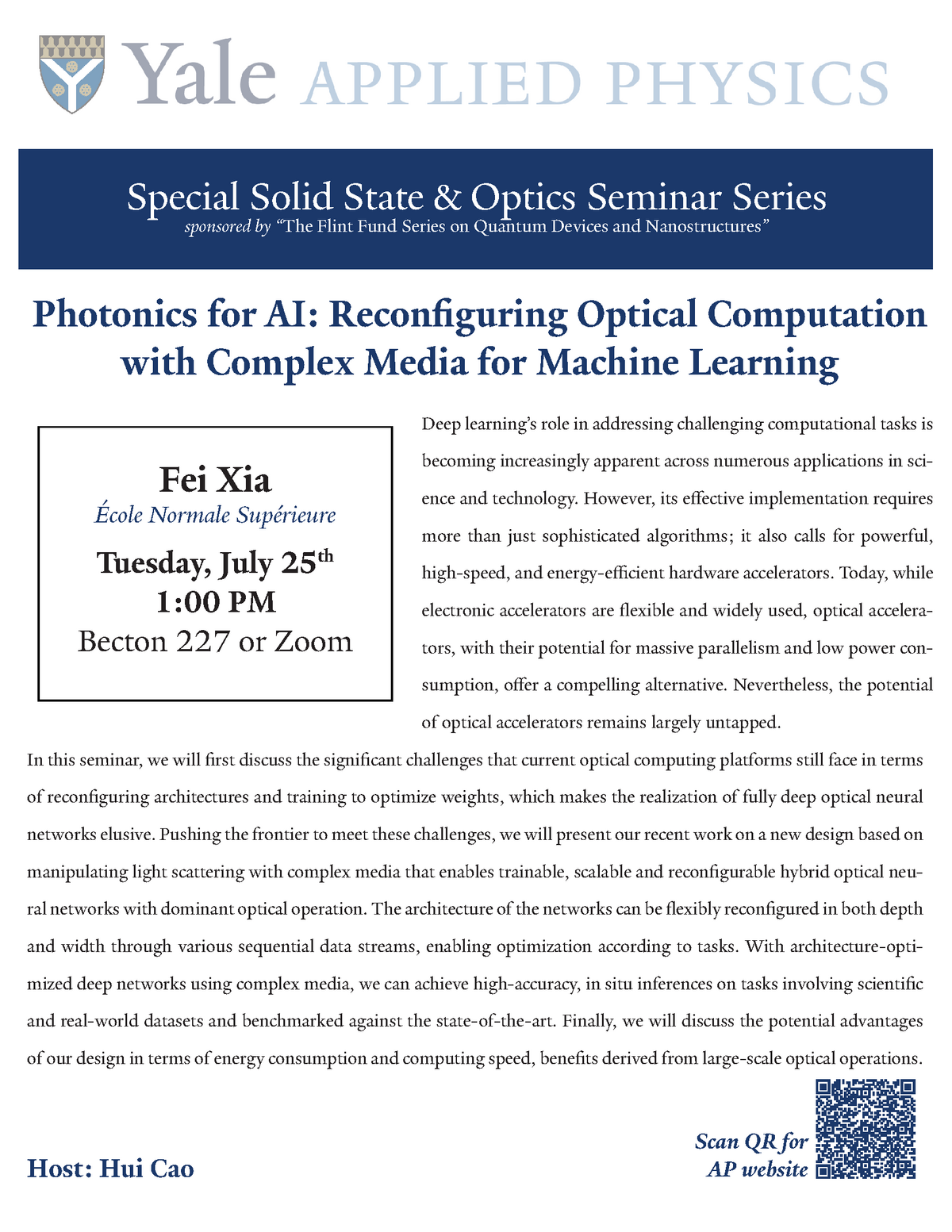Special Solid State & Optics Seminar
sponsored by “The Flint Fund Series on Quantum Devices and Nanostructures”
Dr. Fei Xia, Department of Physics, Department of Physics, École Normale Supérieure
Date : Tuesday, July 25th
Time: 1:00 PM
Location: Becton 227 or via Zoom
Zoom Link: https://yale.zoom.us/j/92932500206?pwd=ZkV4aTErRXRYVXJWRUlERjN6WE93Zz09
Password: 345945
Photonics for AI: Reconfiguring Optical Computation with Complex Media for Machine Learning
Deep learning’s role in addressing challenging computational tasks is becoming increasingly apparent across numerous applications in science and technology. However, its effective implementation requires more than just sophisticated algorithms; it also calls for powerful, high-speed, and energy-efficient hardware accelerators. Today, while electronic accelerators are flexible and widely used, optical accelerators, with their potential for massive parallelism and low power consumption, offer a compelling alternative. Nevertheless, the potential of optical accelerators remains largely untapped.
In this seminar, we will first discuss the significant challenges that current optical computing platforms still face in terms of reconfiguring architectures and training to optimize weights, which makes the realization of fully deep optical neural networks elusive. Pushing the frontier to meet these challenges, we will present our recent work on a new design based on manipulating light scattering with complex media that enables trainable, scalable and reconfigurable hybrid optical neural networks with dominant optical operation. The architecture of the networks can be flexibly reconfigured in both depth and width through various sequential data streams, enabling optimization according to tasks. With architecture-optimized deep networks using complex media, we can achieve high-accuracy, in situ inferences on tasks involving scientific and real-world datasets and benchmarked against the state-of-the-art. Finally, we will discuss the potential advantages of our design in terms of energy consumption and computing speed, benefits derived from large-scale optical operations.

Figure: trainable computation based on complex medium
Biography: Fei Xia is a postdoctoral researcher with Prof. Sylvain Gigan at École Normale Supérieure in Paris, France. Her research focuses on computational optics for machine learning and microscopy. Fei Xia received her Ph.D. under supervision of Prof. Chris Xu in 2021 from Cornell University, where she studied innovative optical microscopy and adaptive optics for deep tissue imaging. Fei was selected as the Women in Optics in 2022 by SPIE, the international society for optics and photonics and awarded Mong NeuroTech Fellowship by Cornell University.
